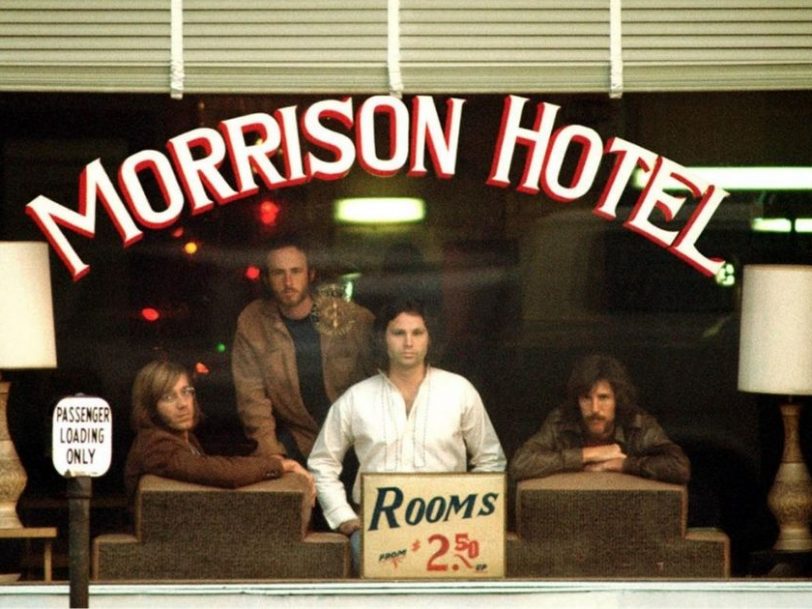It’s fair to say The Doors were in a pretty dark place when they came to record their fifth album, Morrison Hotel. They’d begun 1969 as one of the biggest bands in the US, but their fortunes plummeted after a chaotic gig in Miami, Florida, in March, during which a drunken Jim Morrison allegedly exposed himself to the audience, calling them “a bunch of fucking idiots” and “slaves, letting people push you around”. With their singer arraigned on a potential felony charge, and the adverse publicity scaring off most concert promoters, the band were forced off the road for months.
Listen to ‘Morrison Hotel’ here.
“It was about trying to climb up from underneath intense negativity”
To compound The Doors’ woes, their fourth album, The Soft Parade, had failed to hit the highs of previous releases. Peaking at No.6 on the Billboard 200 during the summer of 1969, the record performed well enough, but it received a lukewarm reception from some critics who felt the band had over-egged the pudding with string arrangements and multiple overdubs.
However, while The Doors may have been down, they were by no means out for the count. Indeed, their enforced break from their intensive concert schedule afforded them an unexpected opportunity to create new music as 1969 wore on.
“We went back to collaborating the way we had in the early days”
“If there was a silver lining to the Miami incident, it was that the cancelled shows left us with nothing but time to write,” guitarist Robby Krieger wrote in his memoir, Set The Night On Fire: Living, Dying And Playing Guitar With The Doors.
“Jim and I went back to collaborating the way we had in the early days. He had words, I had riffs and we finally had the chance to sit down and combine them. It wasn’t exactly like it was in my parents’ living room in our early days, since the trial, our personal lives and Jim’s filmmaking aspirations were new distractions, but it was at least more reminiscent of a more pure era.”
The Doors also decided that Morrison Hotel would signal a return to their roots. While they’d enjoyed experimenting with new textures on The Soft Parade, their new record would be notably more direct, with the emphasis on raw, blues-inflected rock’n’roll.
“We just got in the studio and jammed”
“We’d given up on the backwards pianos and the string sections, the Moog and all the experimentation,” Krieger confirmed. “Also, our production team, Paul [Rothchild] and Bruce [Botnick], had gotten much better at dialling in drum sounds quickly. And Paul had loosened up a bit when it came to insisting on extra takes. We just got in the studio and jammed, and the songs came together organically.”
This fresh approach immediately benefitted several of Morrison Hotel’s standout cuts, not least the record’s opening song, the smouldering Roadhouse Blues.




